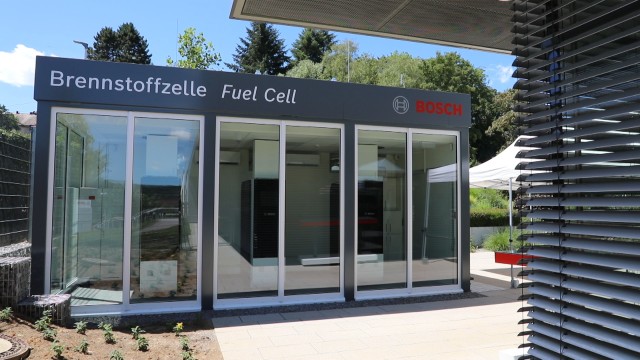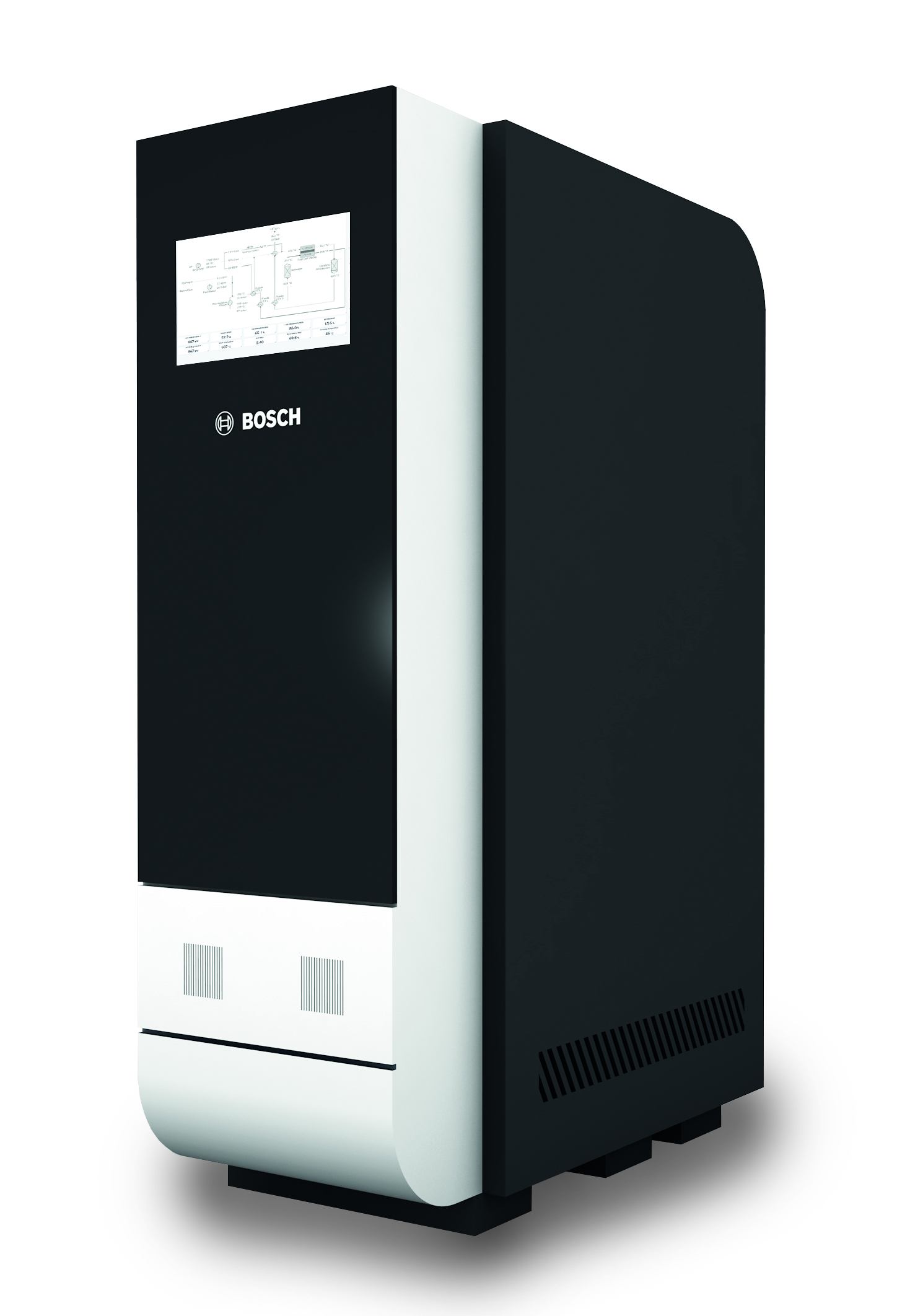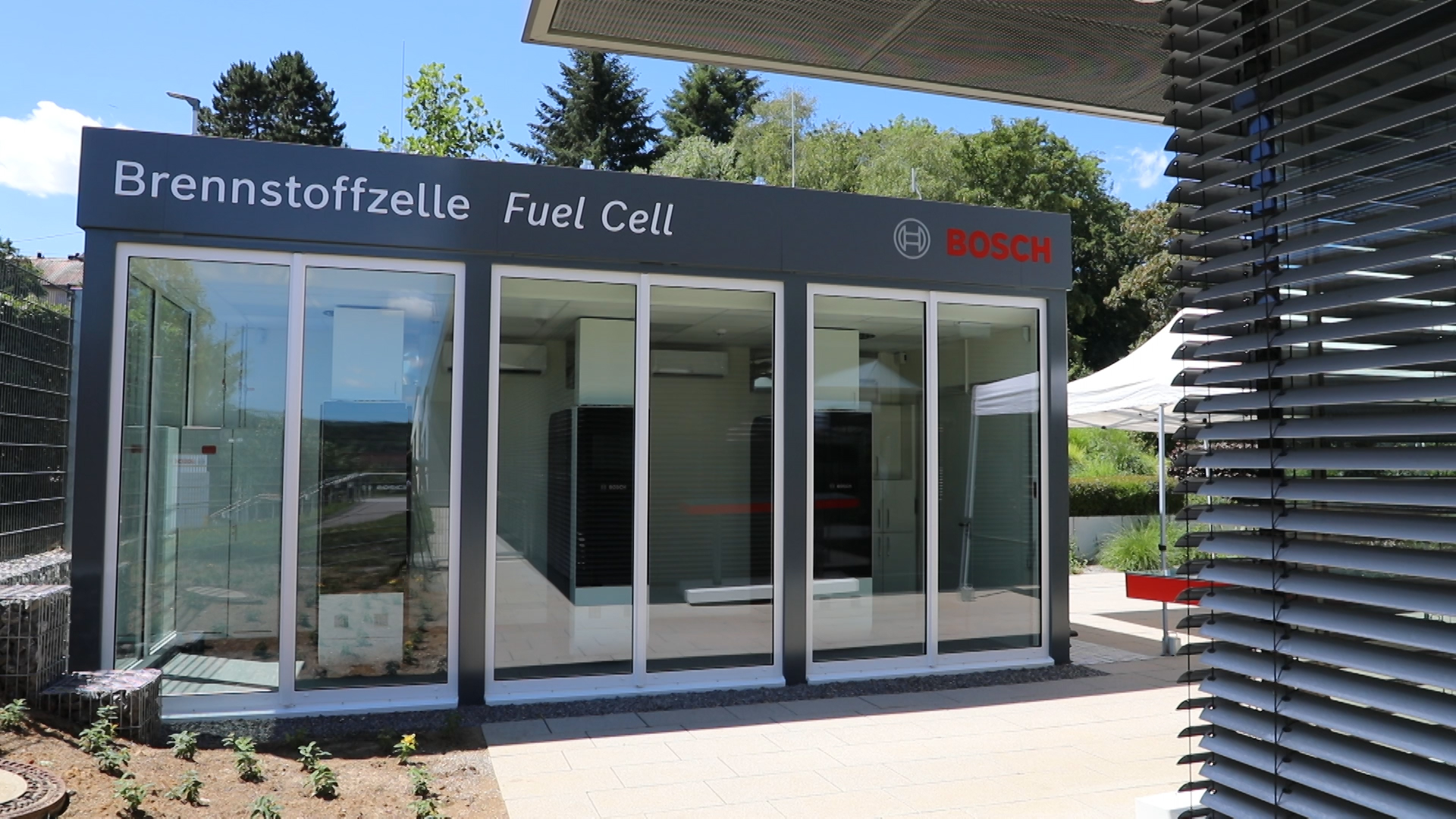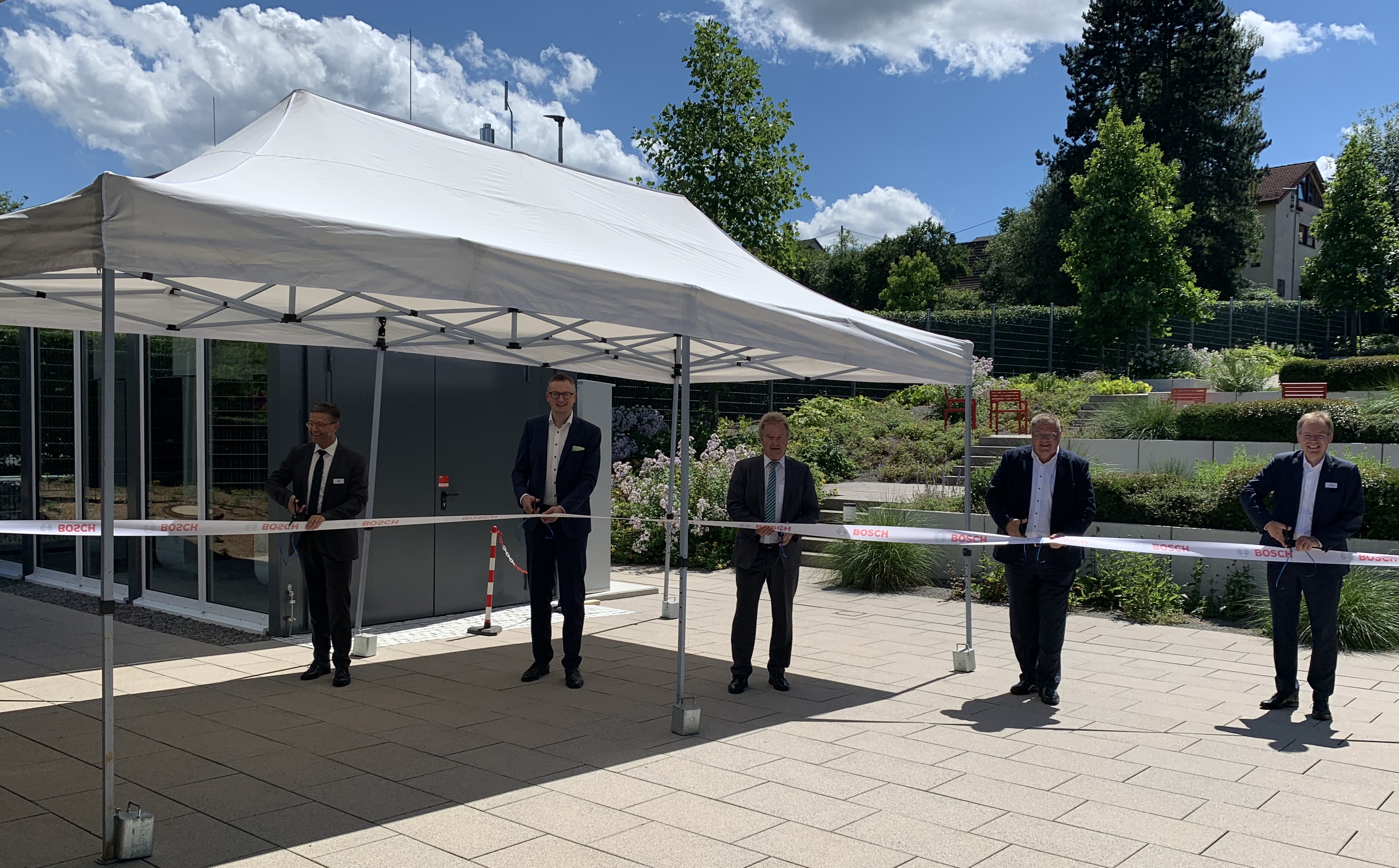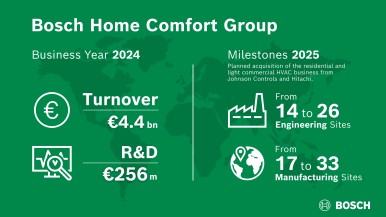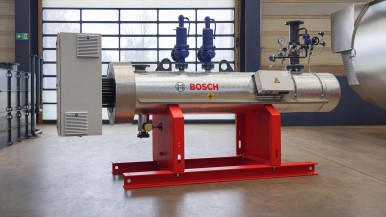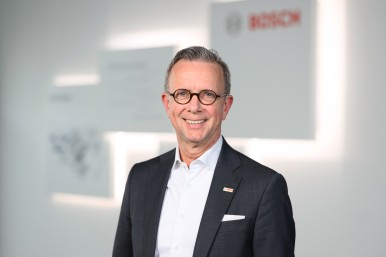Bosch is opening a new chapter in the energy transition: At the Bosch training center in Wernau, Germany, a fuel cell pilot installation based on SOFC technology, short for Solid Oxide Fuel Cell, is launched. The system consists of three fuel cell devices for stationary applications, which supplement the existing power supply of Wernau plant in a CO2-saving manner and drive the further development of these decentralized energy systems.
Technical Contact:
Dr. Markus Ohnmacht M/PJ-SOFC
Markus.Ohnmacht@de.bosch.com
Journalist Contact:
Anne Kaletsch TT/COM
Anne.Kaletsch@de.bosch.com
Bosch Thermotechnology is a leading European manufacturer of energy-efficient heating products and hot water solutions. In fiscal 2020, the company generated sales of about 3.5 billion euros (63 percent outside Germany) and employed almost 14,000 people. Bosch Thermotechnology has strong international and regional brands and manufactures a diversified product range in Europe, America and Asia.
Further information is available online at www.bosch-thermotechnology.com.
The Bosch Group is a leading global supplier of technology and services. It employs roughly 395,000 associates worldwide (as of December 31, 2020). The company generated sales of 71.5 billion euros in 2020. Its operations are divided into four business sectors: Mobility Solutions, Industrial Technology, Consumer Goods, and Energy and Building Technology. As a leading IoT provider, Bosch offers innovative solutions for smart homes, Industry 4.0, and connected mobility. Bosch is pursuing a vision of mobility that is sustainable, safe, and exciting. It uses its expertise in sensor technology, software, and services, as well as its own IoT cloud, to offer its customers connected, cross-domain solutions from a single source. The Bosch Group’s strategic objective is to facilitate connected living with products and solutions that either contain artificial intelligence (AI) or have been developed or manufactured with its help. Bosch improves quality of life worldwide with products and services that are innovative and spark enthusiasm. In short, Bosch creates technology that is “Invented for life.” The Bosch Group comprises Robert Bosch GmbH and its roughly 440 subsidiary and regional companies in some 60 countries. Including sales and service partners, Bosch’s global manufacturing, engineering, and sales network covers nearly every country in the world. With its more than 400 locations worldwide, the Bosch Group has been carbon neutral since the first quarter of 2020. The basis for the company’s future growth is its innovative strength. At 129 locations across the globe, Bosch employs some 73,000 associates in research and development, of which nearly 34,000 are software engineers.
Additional information is available online at www.bosch.com, www.iot.bosch.com, www.bosch-press.com, www.twitter.com/BoschPress.

